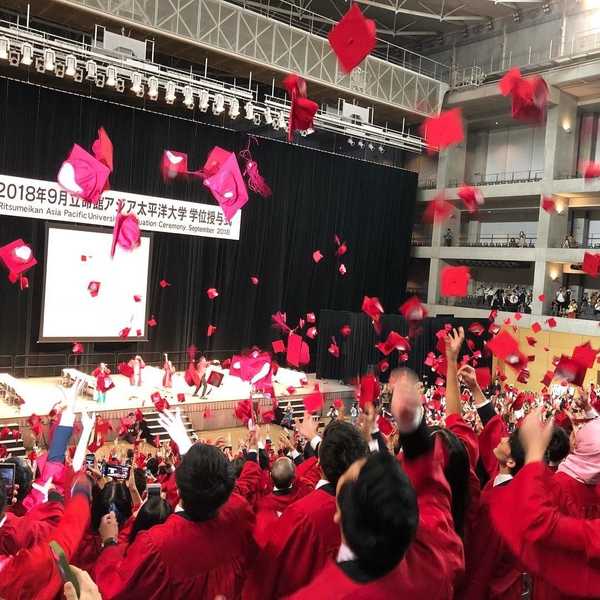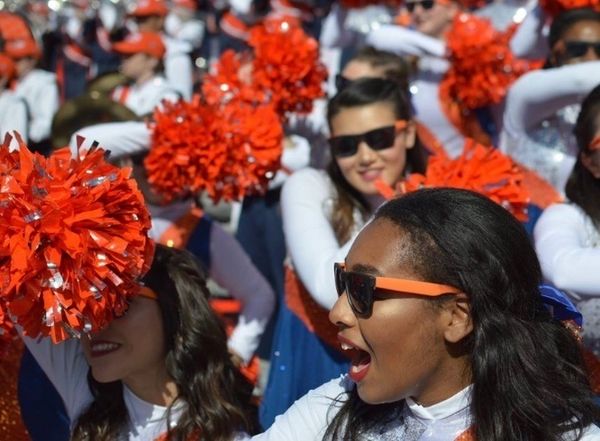"What do you want to be when you grow up?" How many times are we asked this as children? Many people will have a different answer over the years while some know exactly what they want right way. For me, it was the latter. Actually, for me, I knew at the age of twelve.
In 2007, Jack Edwards became the full time play-by-play for the Boston Bruins. Around this time was when I had become a huge hockey fan, seeing as many games as I could. The Bruins played Montreal in the first round of the playoffs that year. Albeit, the outcome wasn’t pleasant, but for me the part that stands out the most was game 6.
The Bruins were facing elimination and were tied with less than three minutes left in the game. It was exciting to watch Marco Sturm score what would become the game winning goal to push game 7. However, when I listened to the call, when I heard the utmost excitement in Jack’s voice, I looked to my father and said “Dad, that’s what I want to do. I want to be Jack Edwards.”
Fast forward ten years later and that dream hasn’t changed. In fact, it’s becoming a huge reality as I work towards my degree. After meeting Jack Edwards, and having him tell me to follow my dream, I asked to interview him. While meeting him was an unbelievable experience, being able to ask him questions about his career was priceless.
KL: I'm writing this article about my greatest career influence and I chose to interview you, how does it feel knowing that you've had a tremendous impact on me, and likely many others, just by going to work every day?
JE: "Well, it’s extremely humbling and it’s extremely flattering. I will give you the same advice my father gave me. When I saw that he loved doing what he did I asked him how he got into that position. He said “figure out what you like doing best and then figure out how to get somebody to pay you to do it.” If you can manage the confluence of those two things then I think you’ll end up with a pretty fulfilling career."
KL: What made you decide that this was the career path for you?
JE: "I always loved sports. I think that competitiveness is a part of a person’s soul and that everybody has some of it and some people have an abundance of it; I think I have an abundance of it. I got an offer to play soccer (at UNH) and I pursued it with full vigor. In the first game of the season (junior year) I broke my leg. I knew it was going to take me out for the season. I had all this energy so I took a summer school course. There was a sign-up sheet for writing broadcast news. I called my advisor the next day, changed my major, and that got me on the path."
KL: Did you have a lot of mentors along the way and who would you consider your greatest one?
JE: "I don’t know if I could pick any one, but certainly he’s (Andy Brickley) the most prominent person in my career because he’s been my partner the longest (12 years) and he’s helped me so much in and out of the broadcast booth.
I’ve learned more about hockey from Andy Brickley than I ever thought was possible; I’ve been able to watch hockey in a completely different way than when I joined him in the booth. It’s due purely in his ability to teach, to encourage fresh ideas, and to give me my space. I’m not a vanilla cookie cutter ice cream type of play-by-play, and there probably are a lot who wouldn’t mesh well with that, but Brick has been just the most perfect partner I ever could have imagined."
KL: What are the most rewarding and challenging parts about being the play-by-play for the Boston Bruins?
JE: "Getting to observe sports at its highest level and to be in the arena when one team proves it’s better than the other. It’s so rewarding to get to see world class athletes with consistency, to see how they invent things, how they deal with different things and, how they inspire their teammates.
The most challenging thing for me is to sort it out and convey the emotion of what’s going on in the arena and bring that energy without losing my (pause) crap."
KL: How long does it take you to prepare for a game you're calling?
JE: "Tremendous question. I probably spend about an average of two to four hours a day in the offseason preparing individual player charts and each individual team. The day before a game (non-back-to-back) I do an additional four hours of work on player prep for the opponent. I’ll watch the most recent game the opponent played, which is another two and a half hours. Then I work on the Bruins, which is another few hours.
On game day, I do a massive download of statistics, I go to the opponent’s morning skate, because putting my eyes on the players themselves helps me immensely with player identification. By the time we go on the air, I’ve probably spent somewhere close to 20 hours preparing for a two and a half hour telecast, but I love the research, so it doesn’t feel like work, it feels like fun."
KL: You've been the play-by-play for many years now. In terms of players, who is the most exciting you've seen play when calling a game?
JE: "I was doing full time play-by-play at the tail end of Messier’s career and he still had flashes of being able to take over a game. Dominic Hasek was so unconventional and so determined to stop the puck in any way possible. Milan Lucic, I have loved Looch since the day I laid eyes on the kid. He has that ability to take over a game.
Patrice Bergeron, Zdeno Chara [in his prime], and Tim Thomas; were all one of those players, whom, through their personalities, can raise the game of 18 teammates in perfect unison, and set a level to throw out there and say, “can you top that?”.
So, while I talk about Hasek and Lucic and Messier, Bergeron is right there with them, but in more of an “I’m in the presence of a genius” way, as opposed to “Did you just see what he did“."
KL: When calling Bruins games, have there been any opponents we’ve faced that you enjoy watching more than others?
JE: "First and foremost, under any circumstances, I love calling games at Bell Centre, because there is no rivalry that contains all the incendiary elements of the Boston Bruins and Montreal Canadiens. There is nothing like it and in my lifetime there will be nothing like it. If your opponent isn’t great, there are no great victors."
KL: Many fans, including myself, thoroughly enjoy your friendship with Andy Brickley on air. Does that translate into an off air friendship as well?
JE: "Oh yeah, it’s funny because Brick and I pretty much live together for six to eight months a year, depending on how well the Bruins do. In the summertime, we touch base from time to time, we send each other text messages every now and again but we hardly see each other. But every year, the first day of training camp you get that excited feeling you get when you’re in fourth grade and you’re going back to school and you’re seeing your old buddies again."
KL: Finally, is there any advice you'd like to give to aspiring sports journalists, or broadcasters, or anybody following their career path dreams who may read this?
JE: "Follow your heart. Listen to that little voice in your head because it is right 100% of the time. If it seems the voice is irrational, go to a place where you really can be centered with your thoughts and figure out why that voice told you to do that thing. This is my absolute favorite quote that I’ve ever come across: “fame is a vapor, popularity, an accident and money takes wing. The only thing that endures is character.” If you cannot be true to your character and really understand what is going to give you fulfillment, you need to sort that out first."
Being able to conduct this interview was an absolute dream come true because he has given me more knowledge about this career path. More importantly, Jack was able to impart so much life experience, including the days where this career was nothing more than a dream to him. Not only did he give me a snapshot of what this career would look like he was also able to confirm my passion and dedication in pursuing my dreams.
If you’re looking forward at your future and are unsure or apprehensive or even a little doubtful of yourself just remember this
“Do what you love to do because it’s astounding how many unexpected turns life can take and it’s just too short to compromise with yourself.” –Jack Edwards



















